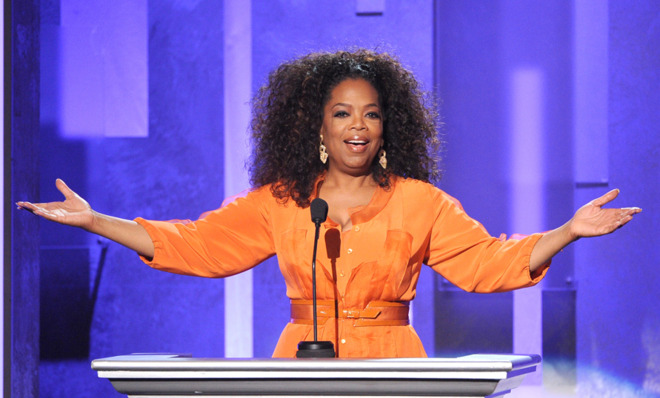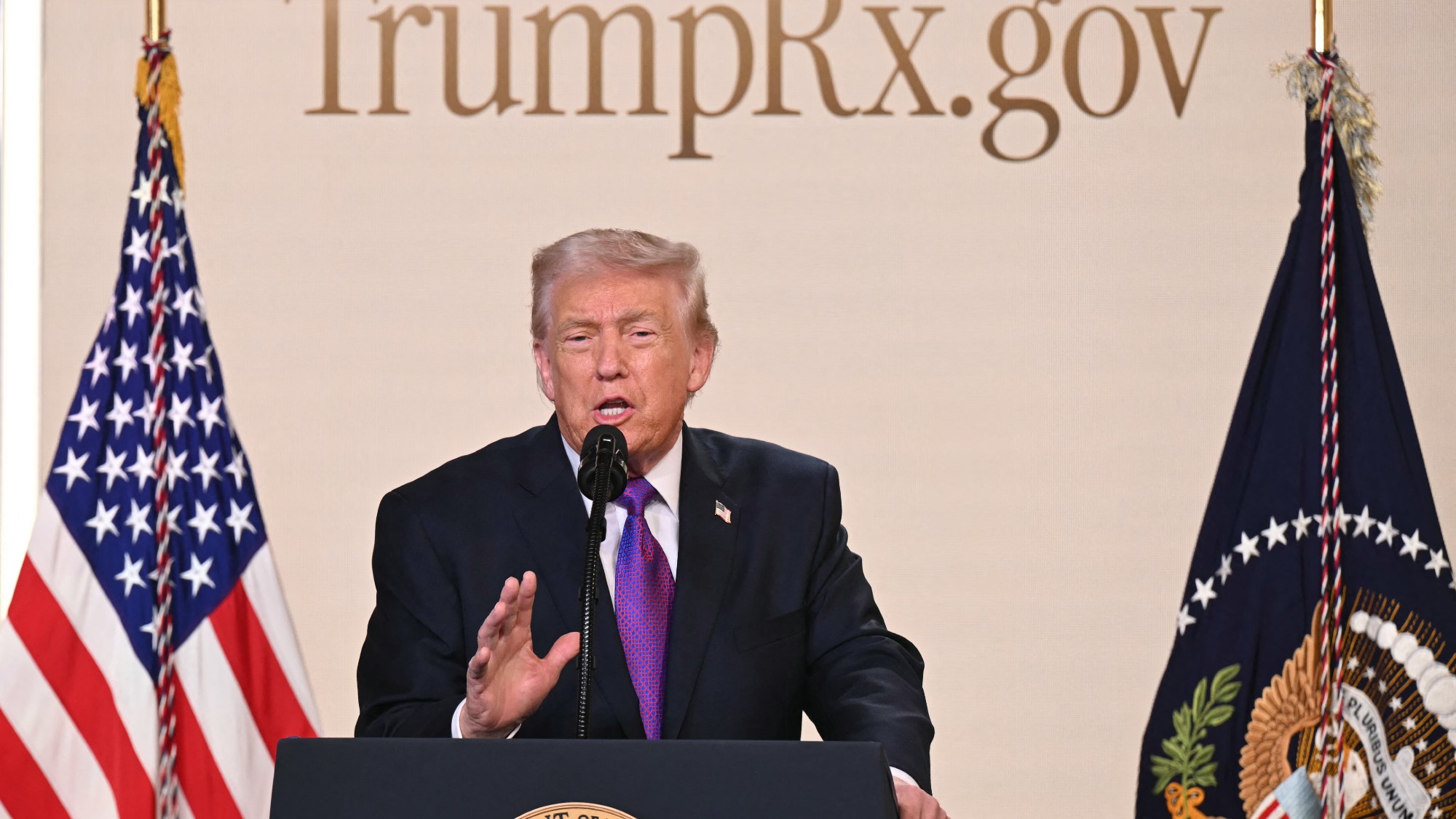Ralph Nader is right: We need a billionaire presidential candidate
There's more money than ever in electoral politics. A self-funded candidate could change all that.


A free daily email with the biggest news stories of the day – and the best features from TheWeek.com
You are now subscribed
Your newsletter sign-up was successful
Ralph Nader, consumer advocate and repeat failed presidential candidate, has an interesting take on who can best fix America's political system and make our government more responsive to average, ordinary people: The super-rich.
On Monday, Nader wrote on his website that the "shared monopolization of politics" by moneyed interests had eroded the government's accountability and entrenched the de facto two-party system. It's a well-worn claim, and one that most Americans would probably agree with. A self-financed presidential candidate could "break this introverting cycle of political oligarchy," Nader says, by giving voters a truly independent option and normalizing the idea of third party candidates.
MERPs [modestly enlightened rich people] receive immediate media coverage, and are likely to be regularly included in polling. They can get on all 50 state ballots, plus D.C. and the Commonwealth of Puerto Rico. They can demand access to the presidential debates or even attract sponsors of additional presidential debates and circumvent the largely corporate-funded arm of the Republican and Democratic Parties, called the Commission on Presidential Debates (see opendebates.org for more information).
MERPs can open up this closed system and make it breathe. And this openness helps people publicly place many issues, redirections, and improvements, from the local to the global, on the electoral table that have been previously wholly neglected by the Republican and Democratic political parties. [Nader.org]
Now, Nader's assessment isn't flawless. It's an earnest, overly optimistic assessment that leaves out a lot of steps between rich person running for president and democracy for everyone.
The Week
Escape your echo chamber. Get the facts behind the news, plus analysis from multiple perspectives.

Sign up for The Week's Free Newsletters
From our morning news briefing to a weekly Good News Newsletter, get the best of The Week delivered directly to your inbox.
From our morning news briefing to a weekly Good News Newsletter, get the best of The Week delivered directly to your inbox.
But on the broader argument about mega-rich presidential candidates being good for democracy, Nader has a sound point.
Money has always played a major role in political campaigns, and especially so in recent years. Following the Supreme Court's ruling in Citizens United, campaign spending by outside interest groups has skyrocketed; this year is on pace to be by far the most expensive non-presidential election ever.
That trend could grow, too, if the Supreme Court further relaxes campaign finance regulations with its imminent ruling in McCutcheon v. FEC. In that case, the court could strike down restrictions on the amount of money individuals can dole out in each election cycle, giving more power to the wealthiest donors.
A free daily email with the biggest news stories of the day – and the best features from TheWeek.com
While it's difficult to quantify money's exact influence on campaigns and politicians, the potential for corruption is widespread and indubitable. And that's to say nothing of the practice of rewarding donors with cushy jobs, an unsettling kind of cronyism that results in dubiously qualified people holding key government jobs.
"Nobody gives big dollars unless they expect to get something back," said former New York City Mayor Michael Bloomberg, who calls the practice "where's mine" syndrome.
A self-financed presidential candidate could theoretically circumvent that problem. At the very least, he or she wouldn't be quite so beholden to all the moneyed interests that routinely bankroll campaigns, or that threaten to withhold funds if their demands aren't met. Consider how Bloomberg, for all his foibles, oversaw myriad bold policies during his tenure — vast new bike infrastructure, smoking bans, increased reliance on natural gas — that he's credited to his financial independence.
Polls routinely show that Americans overwhelmingly believe money has a negative, outsize influence on politics. More than eight in 10 Americans said the campaign finance fire hose had made Washington more dysfunctional, negative, and corrupt, according to a 2012 poll commissioned by the Corporate Reform Coalition. And a record 42 percent of Americans now identify as Independents, according to Gallup, which dovetails neatly with Americans' unprecedented dissatisfaction with Washington as a whole.
In other words, voters are fed up with our current political system, and so might be receptive to a crusading billionaire's presidential campaign. Heck, Ross Perot got almost one fifth of the vote in 1992 despite being kind of a kook. What would a more serious candidate pull off in 2016?
Granted, there are some drawbacks to this deus ex machina solution. It's possible a self-financed president wouldn't be the populist Nader envisions, favoring business-friendly policies at the expense of the non-mega-rich. Also, self-financed candidates hardly ever win; just ask Linda McMahon, who blew nearly $100 million of her World Wrestling Entertainment fortune on two Senate bids in Connecticut.
Still, the idea of a billionaire candidate is, generally speaking, a good one. A self-funded billionaire could reshape our electoral system and offer a true independent option. And really, would a billionaire buying his way into the White House be much worse than the money-saturated system we already have?
Jon Terbush is an associate editor at TheWeek.com covering politics, sports, and other things he finds interesting. He has previously written for Talking Points Memo, Raw Story, and Business Insider.
-
 Democrats seek calm and counterprogramming ahead of SOTU
Democrats seek calm and counterprogramming ahead of SOTUIN THE SPOTLIGHT How does the party out of power plan to mark the president’s first State of the Union speech of his second term? It’s still figuring that out.
-
 Climate change is creating more dangerous avalanches
Climate change is creating more dangerous avalanchesThe Explainer Several major ones have recently occurred
-
 What’s TrumpRx and who is it for?
What’s TrumpRx and who is it for?The Explainer The new drug-pricing site is designed to help uninsured Americans
-
 The billionaires’ wealth tax: a catastrophe for California?
The billionaires’ wealth tax: a catastrophe for California?Talking Point Peter Thiel and Larry Page preparing to change state residency
-
 Bari Weiss’ ‘60 Minutes’ scandal is about more than one report
Bari Weiss’ ‘60 Minutes’ scandal is about more than one reportIN THE SPOTLIGHT By blocking an approved segment on a controversial prison holding US deportees in El Salvador, the editor-in-chief of CBS News has become the main story
-
 Has Zohran Mamdani shown the Democrats how to win again?
Has Zohran Mamdani shown the Democrats how to win again?Today’s Big Question New York City mayoral election touted as victory for left-wing populists but moderate centrist wins elsewhere present more complex path for Democratic Party
-
 Millions turn out for anti-Trump ‘No Kings’ rallies
Millions turn out for anti-Trump ‘No Kings’ ralliesSpeed Read An estimated 7 million people participated, 2 million more than at the first ‘No Kings’ protest in June
-
 Ghislaine Maxwell: angling for a Trump pardon
Ghislaine Maxwell: angling for a Trump pardonTalking Point Convicted sex trafficker's testimony could shed new light on president's links to Jeffrey Epstein
-
 The last words and final moments of 40 presidents
The last words and final moments of 40 presidentsThe Explainer Some are eloquent quotes worthy of the holders of the highest office in the nation, and others... aren't
-
 The JFK files: the truth at last?
The JFK files: the truth at last?In The Spotlight More than 64,000 previously classified documents relating the 1963 assassination of John F. Kennedy have been released by the Trump administration
-
 'Seriously, not literally': how should the world take Donald Trump?
'Seriously, not literally': how should the world take Donald Trump?Today's big question White House rhetoric and reality look likely to become increasingly blurred
